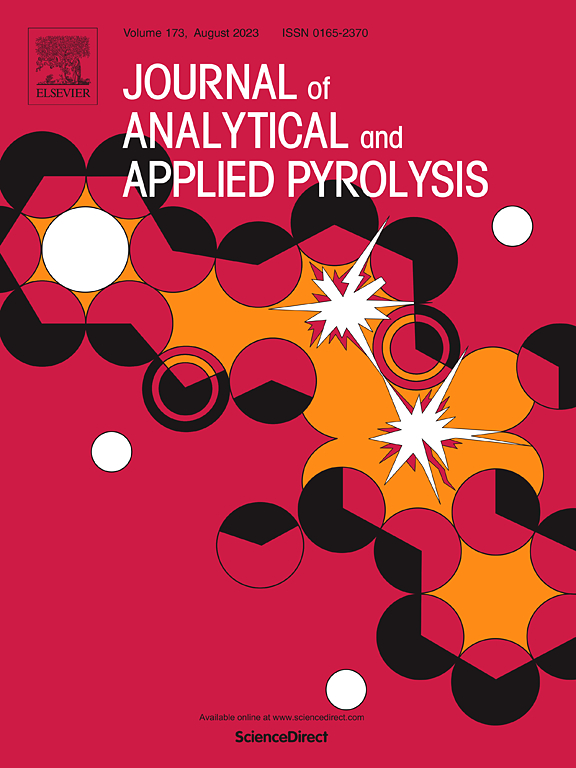玉米芯生物炭的制备、分层表征和潜在应用
IF 5.8
2区 化学
Q1 CHEMISTRY, ANALYTICAL
引用次数: 0
摘要
为研究不同部位玉米芯制备的生物炭的特性,以玉米芯为原料,在 500 ℃、600 ℃ 和 700 ℃ 的恒温条件下制备生物炭,并根据生物炭的宏观结构将其分为三部分:内层(CC-N)、中层(CC-Z)和外层(CC-W)。通过傅立叶变换红外光谱、X 射线衍射、拉曼和扫描电镜评估了生物炭样品的组成和理化变化。结果表明,玉米芯的微观结构是异质的,CC-N 像枯叶,CC-Z 像块状,CC-W 像片状。从内层到外层,生物炭的比表面积和平均孔径明显减小。生物炭三个部分的官能团结构相似,但 CC-N 的红外光谱峰强度最大。CC-N 的石墨化程度和热稳定性低于 CC-Z 和 CC-W。高温热解促进了炭的石墨化,提高了其热稳定性。该研究为利用不同层的玉米芯制备活性炭和优质固体生物燃料提供了重要的理论支持。本文章由计算机程序翻译,如有差异,请以英文原文为准。
The preparation, layered characterization and potential applications of corncob biochar
To investigate the characteristics of biochar produced from different parts of corncob, biochar was prepared using corncob as a raw material at constant temperatures of 500 °C, 600 °C, and 700 °C, and the biochar was divided into three parts based on its macroscopic structure: an inner layer (CC-N), a middle layer (CC-Z), and an outer layer (CC-W). The composition and physicochemical changes of the biochar samples were evaluated via FTIR, XRD, Raman, and SEM. The results revealed that the microstructure of corncob is heterogeneous, with CC-N resembling withered leaves, CC-Z resembling blocks, and CC-W resembling sheets. The specific surface area and average pore size of the biochar significantly decreased from the inner layer to the outer layer. The functional group structures of the three parts of the biochar are similar, but the infrared spectrum of CC-N has the greatest peak intensity. The degree of graphitization and thermal stability of CC-N were lower than those of CC-Z and CC-W. Higher-temperature pyrolysis promoted the graphitization of char and improved its thermal stability. This research provides important theoretical support for the preparation of activated carbon and high-quality solid biofuels from different layers of corncob.
求助全文
通过发布文献求助,成功后即可免费获取论文全文。
去求助
来源期刊
CiteScore
9.10
自引率
11.70%
发文量
340
审稿时长
44 days
期刊介绍:
The Journal of Analytical and Applied Pyrolysis (JAAP) is devoted to the publication of papers dealing with innovative applications of pyrolysis processes, the characterization of products related to pyrolysis reactions, and investigations of reaction mechanism. To be considered by JAAP, a manuscript should present significant progress in these topics. The novelty must be satisfactorily argued in the cover letter. A manuscript with a cover letter to the editor not addressing the novelty is likely to be rejected without review.

 求助内容:
求助内容: 应助结果提醒方式:
应助结果提醒方式:


